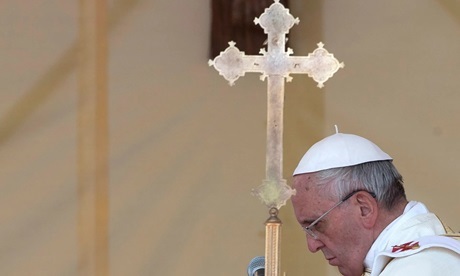Recently a community of Poor Clare nuns in Spain announced their decision to leave the Catholic Church, thus committing the canonical crime of schism and incurring excommunication.
Italian Archbishop Carlo María Viganò is also undergoing a Vatican extrajudicial process for schism.
Just what are schism and excommunication in the Catholic Church? An explanation follows.
Schism
According to the Catholic Encyclopedia, schism is:
“the rupture of ecclesiastical union and unity, i.e. either the act by which one of the faithful severs as far as in him lies the ties which bind him to the social organization of the Church and make him a member of the mystical body of Christ, or the state of dissociation or separation which is the result of that act.”
Canon 751 of the Code of Canon Law states that schism is “the refusal of submission to the supreme pontiff or of communion with the members of the Church subject to him.”
Canon 1364 stipulates that the penalty for this crime is excommunication “latae sententiae,” i.e., automatically upon the commission of the offense.
Excommunication
Briefly, excommunication can be defined as the most serious penalty a baptized person can incur.
It consists of being placed outside the communion of the faithful of the Catholic Church and denied access to the sacraments.
The Catholic Encyclopedia states that excommunication is “a medicinal, spiritual penalty that deprives the guilty Christian of all participation in the common blessings of ecclesiastical society.”
“Being a penalty, it supposes guilt; and being the most serious penalty that the Church can inflict, it naturally supposes a very grave offense.
The encyclopedia also explains “It is also a medicinal rather than a vindictive penalty, being intended not so much to punish the culprit as to correct him and bring him back to the path of righteousness,”.
Why is a person excommunicated? Read more
- Walter Sánchez Silva is a senior writer for ACI Prensa
